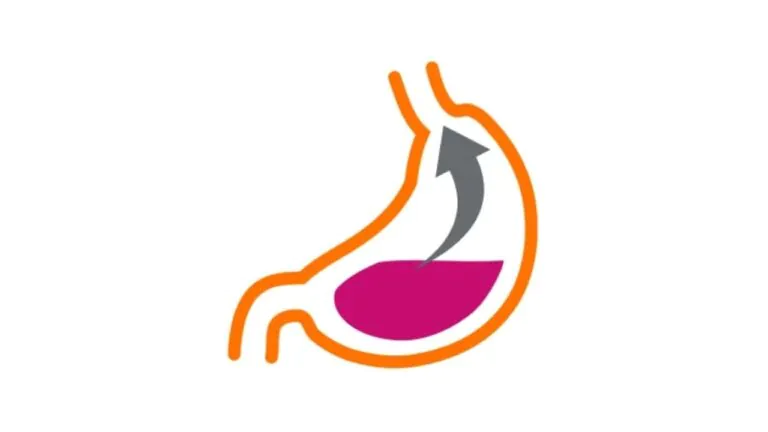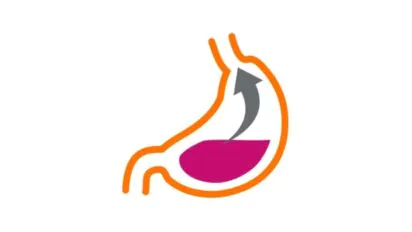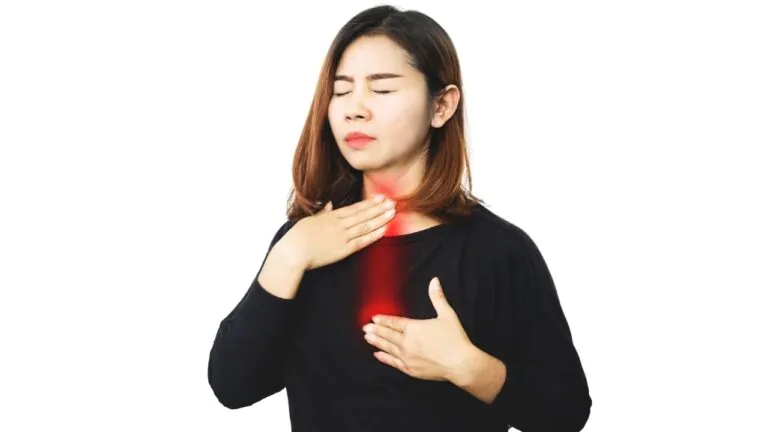All content on this website is for informational purposes only, and is not intended to be a substitute for professional medical advice, diagnosis or treatment. If you have questions about your medical condition or treatment, always seek advice of your physician or other qualified healthcare professional.
Acid Reflux (1, 2, 3, 4)
Gastroesophageal reflux disease (GERD) is a common foregut disorder that results from a defective reflux barrier at the esophagogastric junction. It continues to be among the most common diseases seen by gastroenterologists, surgeons, and primary care physicians.
The burden of GERD varies over time and between or within countries and territories.
0m
cases of GERD globally in 2019 (1)
0%
prevalent cases increasing
(from 441.57 million in 1990 to 783.95 million in 2019)
Recently, with improvements in living standards and changes in lifestyle and dietary habits, the incidence of GERD has been increasing yearly. Meanwhile, there are also correlation between GERD and ethnicity, Helicobacter pylori infection, gender, age, and lifestyle.
Gastroesophageal reflux disease is a condition in which stomach acid repeatedly flows back up into the tube connecting the mouth and stomach, called the esophagus. It’s often called GERD for short. This backwash is known as acid reflux, and it can irritate the lining of the esophagus.
Many people experience acid reflux now and then. However, when acid reflux happens repeatedly over time, it can cause GERD.
Most people can manage the discomfort of GERD with lifestyle changes and medicines. And though it’s uncommon, some may need surgery to help with symptoms.


Typical symptoms of GERD include heartburn and regurgitation. In addition, upper belly or chest pain, trouble swallowing, called dysphagia. sensation of a lump in the throat.
- Heartburn is the most common GERD symptom, and is described as substernal burning sensation rising from the epigastrium up toward the neck. Heartburn usually happens after eating and might be worse at night or while lying down.
- Regurgitation is the effortless return of gastric contents upward toward the mouth, often accompanied by an acid or bitter taste.


GERD can also cause a variety of extraesophageal manifestations. They can include laryngeal and pulmonary symptoms such as hoarseness, throat clearing, and chronic cough, and conditions such as laryngitis, pharyngitis, and pulmonary fibrosis. It also has been proposed that GERD might exacerbate asthma. Chest pain is commonly listed as a symptom of GERD.
GERD can’t be approached as a single disease, but one with multiple presentations and different diagnostic considerations. A healthcare professional might be able to diagnose GERD based on a history of symptoms and a physical examination.
- Upper endoscopy is the most widely used objective test for evaluating the esophageal mucosa.
- High resolution esophageal manometry can be used to assess motility abnormalities associated with GERD
- Ambulatory reflux monitoring (pH or impedance-pH) allows for assessment of esophageal acid exposure to establish or refute a diagnosis of GERD, and for correlating symptoms with reflux episodes.
GERD is a prevalent chronic condition, which when untreated can lead to complications such as erosive esophagitis, Barrett’s esophagus, and esophageal adenocarcinoma.
Possible complications include:
- Esophagitis is inflammation in the lining of esophagus. Chronic esophagitis can cause chronic pain and complications, like ulcers in your esophagus. After a long time, it can cause tissue changes like a precancerous condition.
- Barrett’s esophagus is intestinal metaplasia of your esophagus. This change happens after long exposure to acid and inflammation. It’s a risk factor for esophageal cancer.
- Esophageal stricture is tissue changes that can cause esophagus to narrow. This is called stricture. Esophageal strictures can make it hard to swallow, which can make it hard to eat and drink.
- Laryngopharyngeal reflux when acid might sneak up into throat while you sleep. It can cause swelling, hoarseness and vocal cord growths, and you can also aspirate acid particles into your airways.
- Asthma when acid in airways may aggravate existing asthma or cause asthma-like symptoms in people without any preexisting respiratory conditions, causing coughing and breathing difficulties.
People affected by GERD can also develop complications in the mouth, throat, and lungs, such as asthma and chronic cough. Medical management includes lifestyle modifications as well as pharmacologic therapy, principally with medications that reduce gastric acid secretion, surgical and endoscopic options.
Management of GERD requires a multifaceted approach, taking into account the symptom presentation, endoscopic findings, and likely physiological abnormalities.
GERD is usually curable. Some people try to modify their lifestyle, while others find relief in over-the-counter medications and other take antacids. Medical management includes lifestyle modifications as well as pharmacologic therapy, principally with medications that reduce gastric acid secretion, some cases surgical and endoscopic options. Non-pharmacologic lifestyle modifications include recommendations for diet modification (content and timing), body positioning with meals and while sleeping, and weight management.
How to prevent health burden?
The greatest gift you can give yourself and your loved ones is a healthy you. Take care of your body and focus on living the highest quality of life you can through your daily choices.
At Acino, we have longstanding knowledge which we want to share with you. Explore our materials to raise your awareness, and make decisions to stay healthy and improve your quality of life.
Conditions that can increase the risk of GERD include:
- Obesity
- Bulging of the top of the stomach up above the diaphragm, known as a hiatal hernia.
- Connective tissue disorders, such as scleroderma.
- Delayed stomach emptying.
Factors that can aggravate acid reflux include:
- Eating large meals or eating late at night.
- Eating certain foods, such as fatty or fried foods.
- Drinking certain beverages, such as alcohol or coffee.
- Taking certain medicines, such as aspirin.
Diet and lifestyle modification 2,6
Common recommendations include weight loss for overweight patients, elevating the head of the bed, tobacco and alcohol cessation, avoidance of late night meals and bedtime snacks, staying upright during and after meals, and cessation of foods that potentially aggravate reflux symptoms (refluxogenic foods) such as coffee, chocolate, carbonated beverages, spicy foods, acidic foods such as citrus and tomatoes, and foods with high fat content.
If you have acid reflux frequently, talk to a healthcare provider. It’s important to find out how it’s affecting your body. GERD isn’t just an inconvenience — it can do real harm.
Seek medical help right away if you have chest pain, especially if you also have shortness of breath, or jaw or arm pain. These may be symptoms of a heart attack.
Make an appointment with a healthcare professional if you have severe or frequent GERD symptoms or take nonprescription medicines for heartburn more than twice a week.
GERD: gastroesophageal reflux disease
References
- Emily M Mackay, Brian E Louie, Evolution in the treatment of gastroesophageal reflux disease over the last century: from a crural-centered to a lower esophageal sphincter–centered approach and back, Diseases of the Esophagus, Volume 36, Issue Supplement_1, June 2023, doac084, https://doi.org/10.1093/dote/doac084
- Katz PO, Dunbar KB, Schnoll-Sussman FH, Greer KB, Yadlapati R, Spechler SJ. ACG Clinical Guideline for the Diagnosis and Management of Gastroesophageal Reflux Disease. Am J Gastroenterol. 2022 Jan 1;117(1):27-56. doi: 10.14309/ajg.0000000000001538. PMID: 34807007; PMCID: PMC8754510.
- Zheng Z, Shang Y, Wang N, et al. Current Advancement on the Dynamic Mechanism of Gastroesophageal Reflux Disease. Int J Biol Sci. 2021;17(15):4154-4164. Published 2021 Oct 3. doi:10.7150/ijbs.65066
- Zhang D, Liu S, Li Z, Wang R. Global, regional and national burden of gastroesophageal reflux disease, 1990-2019: update from the GBD 2019 study. Ann Med. 2022 Dec;54(1):1372-1384. doi: 10.1080/07853890.2022.2074535. PMID: 35579516; PMCID: PMC9122392.
- Gastroesophageal reflux disease (GERD) – Symptoms and causes. Mayo Clinic. Available at: https://www.mayoclinic.org/diseases-conditions/gerd/symptoms-causes/syc-20361940 Accessed 16.04.2025
- AGA Clinical Practice Update on the Diagnosis and Management of Extraesophageal Gastroesophageal Reflux Disease: Expert Review. Chen, Joan W. et al.Clinical Gastroenterology and Hepatology, Volume 21, Issue 6, 1414 – 1421.e3. Available at: https://www.cghjournal.org/article/S1542-3565(23)00143-X/fulltext. Accessed 16.04.202
- Acid Reflux & GERD. (2025, March 31). Cleveland Clinic. Available at https://my.clevelandclinic.org/health/diseases/17019-acid-reflux-gerd Accessed 16.04.2025
Last updated: 16 April 2025
GLO-GASTRO-04/2025-03